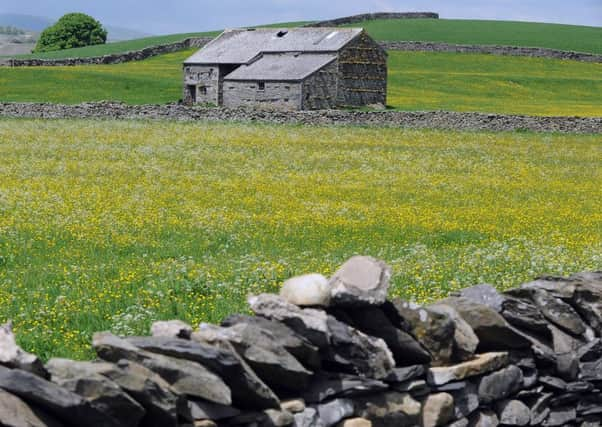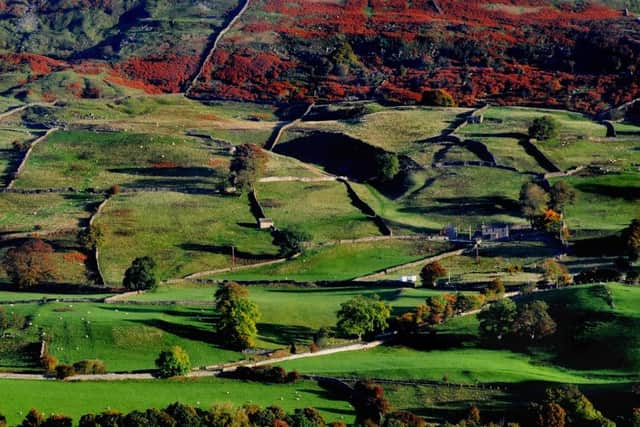National Park changes could see hundreds of homes built in the Yorkshire Dales


The move lifting tight restrictions on converting traditional farm buildings into housing is expected to trigger a surge of national interest in the Yorkshire Dales where there are an estimated 6,000 fieldbarns.
Only roadside farm buildings, estimated to number around 800, will be considered for conversion under new regulations.
Advertisement
Hide AdAdvertisement
Hide AdDevelopers are already in talks over potential sites, with some in the best locations likely to attract buyers from around the country looking for second homes or retirement properties.


The barns are among the distinctive features which make the area special to millions of visitors each year but there is growing concern over their condition.
Most date back at least 150 years, surviving on a scale which is unique to the Dales, but many are now redundant.
Surveys show one in six are already beyond repair, with a further 22 per cent in danger of falling into ruin, and in the wake of public spending cuts which have seen national parks face 40 per cent budget cuts, there is no money to restore them.
Advertisement
Hide AdAdvertisement
Hide AdLimits on barn conversions have prevented developments outside towns, villages and farmsteads and even then ownership is restricted to people living locally.


Under new rules to be examined shortly by a planning inspector, developers will be charged a “conservation levy” if they want to sell conversions to newcomers to the Dales, put at around £25,000 for a four-bedroom home.
The money will be reinvested by the Yorkshire Dales National Park Authority on restoring crumbling fieldbarns unsuitable for conversion.
Richmondshire councillor John Blackie, who is also a park authority member, said the change would ease a housing crisis that had forced many young families to leave.
Advertisement
Hide AdAdvertisement
Hide Ad“This should have been allowed years ago and we would have far more children in our schools. It will be a lot better for the local economy to have people living locally, working locally and spending locally.”
Officials at the park authority say the levy will tap into developers’ profits to pay for repairs.
Peter Stockton, its head of sustainable development, said the charge in the new Local Plan was “pushing at the boundaries of normal planning policy” but would offset the harm to buildings and the landscape from development.
“We imagine there will be quite a few people in Britain who might want to have a house in the Yorkshire Dales but what is stopping them at the moment, arguably, is our local occupancy policy,” he said. “There may be as many as 800 that could possibly be looked at under this policy.”
Advertisement
Hide AdAdvertisement
Hide AdMark Corner, chairman of the Yorkshire Dales Society, said it had concerns about the growing scale of development in general in the Dales but supported the barns policy.
“Provided it’s done well we are generally supportive because the alternative of seeing barns fall down and disappear is not a very satisfactory outcome,” he said.